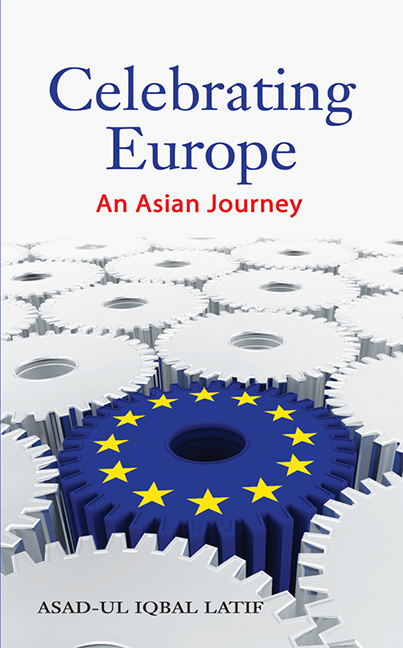Book contents
- Frontmatter
- Dedication
- Contents
- Foreword
- Acknowledgements
- Introduction: Europe
- 1 Europe Abroad
- 2 Gentiles
- 3 The Berlin Wall
- 4 Soviets of the Mind
- 5 The Secular Soul
- 6 The Leopard's Italy
- 7 England
- 8 Champagne France
- 9 Two Bengali Greeks
- 10 The Polish Hospital
- 11 Postmodern Europe
- Bibliography
- Index
- About the Author
Introduction: Europe
Published online by Cambridge University Press: 21 October 2015
- Frontmatter
- Dedication
- Contents
- Foreword
- Acknowledgements
- Introduction: Europe
- 1 Europe Abroad
- 2 Gentiles
- 3 The Berlin Wall
- 4 Soviets of the Mind
- 5 The Secular Soul
- 6 The Leopard's Italy
- 7 England
- 8 Champagne France
- 9 Two Bengali Greeks
- 10 The Polish Hospital
- 11 Postmodern Europe
- Bibliography
- Index
- About the Author
Summary
The world is in large part a European invention. Europe has created, named, and shaped every historical era, from the classical world and the Middle Ages, to the Renaissance, the Reformation, and their culmination in the modern age of the nation-state, and now to the postmodern lease of life promised by the supranationalism of the European Union. It is instructive that Europeans — and only Europeans — have succeeded in travelling beyond the nation-state into a quasi-federal union. It took two world wars — Europe's two great “civil wars” — to set that process of integration in motion through the transnational control of coal and steel, two commodities that are crucial to the conduct of modern warfare. Certainly, the collective idea of Europe as an inherited political and cultural domain is marked by great contention and contest, but this disagreement is natural because, like all identities, the identity of Europe is constructed around “shifting discursive practices” that emerge from a rich register of political, cultural, and economic languages.
The chapters that follow constitute a modest attempt to relate an Asian's encounters with Europe. My understanding of Europe was mediated by my family's experience of the contradictory British impulses of colonialism and liberalism; that understanding was nuanced later by my student life at Cambridge, to which I went, following in my father's footsteps. Two chapters in the book are about Britain. Europe's colonial depredations were echoed in the horrors of the Holocaust, which form the subject of an early chapter. The chapter, “Gentiles”, is a defence of the intellectual basis of European secularism in the face of the international assault mounted by confessional societies and their states. It examines how secularism was crucial to the very evolution of Europe as a civilization; how the secular impulse is related to the struggle between Hebraism and Hellenism for the European imagination; how that struggle has evolved into the ironic sense of life (compared with the tragic sense of life); and what some implications of the ironic life might be for Europe’s role as a sanctuary for dissidence and heresy today.
- Type
- Chapter
- Information
- Celebrating EuropeAn Asian Journey, pp. 1 - 7Publisher: ISEAS–Yusof Ishak InstitutePrint publication year: 2012

